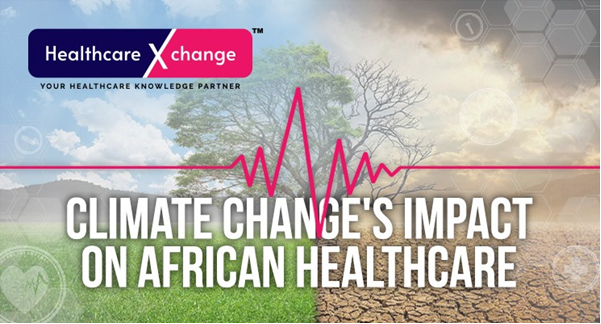
Why Climate Change is the Biggest Challenge for Healthcare in Africa
- Healthcare and General Service
- October 15, 2024
Highlights:
-
Climate change impacts health systems on multiple levels, including natural, social, and economic aspects
-
Response mechanisms need to be supplemented with early detection technology and financial innovations
Overview
Climate change stands as a top risk for healthcare in the 21st century. African developing countries bear the brunt of climate change events, causing damage across economic, social, and public health sectors. The phenomenon acts as a threat multiplier, impacting health systems directly and indirectly.
According to the Intergovernmental Panel on Climate Change, tens of millions of Africans currently suffer severe health impacts due to climate change, including heat stress, harsh weather, and increased infectious disease transmission.
The World Meteorological Organisation (WMO) recorded 1,839 catastrophes in Africa caused by weather, climate, or water risks between 1970-2021. These disasters resulted in 733,585 fatalities and USD 43 billion in economic damage.
Patterns of Infection
According to World Health Organisation (WHO) research, water-borne diseases have caused 40% of climate-related health emergencies in the past two decades.
Diarrheal infections are the third most important cause of sickness and death in children under the age of five in Africa. Safe water consumption, proper sanitation, and good hygiene may prevent the majority of these deaths.
Yellow fever and other vector-borne illnesses accounted for 28% of climate-related health crises.
The WHO discovered that Congo-Crimean hemorrhagic fever, a virus that infects both people and animals, had a fatality rate of up to 40% during outbreaks.
Natural catastrophes have also increased dramatically after 2010, with 70% of all natural disasters occurring between 2017-2021. Floods accounted for 33% of all reported natural disasters.
Other significant health implications of climate change in Africa include malnutrition and hunger caused by low agricultural output, concerns about children’s long-term health and development, and other infectious illnesses such as malaria. According to research by the Global Centre on Adaptation in the Netherlands, climate change may increase the number of high-risk malaria areas in Africa. The report also noted that, while malaria mortality has decreased from 840,000 in 2000 to 602,000 in 2020, the disease continues to pose a severe health danger to the continent.

Measures to Address Impact of Climate Change on Healthcare
The WHO aids nations in strengthening their health systems to better adapt, be more resilient, and manage climate-related events. Strategies involve assessing health system deficiencies and implementing actions to protect lives and health from negative repercussions of climate-related health crises.
The Organisation also supports countries in ensuring their ministries of health can effectively coordinate, increase knowledge, and monitor risks and implications of climate change on health. For example, WHO collaborated with health authorities in Ethiopia, Malawi, Mozambique, and Tanzania to build an early warning and response system predicting the risk of vector/water-borne diseases and responding swiftly.
Health professionals have called for an integrated response to climate change-based health emergencies. Such measures need to involve multiple stakeholders such as the government, civil, religious institutions, intergovernmental, international organisations, and the private sector. The initiatives’ scope should encompass financial and technological aspects to supplement healthcare efforts.
The World Meteorological Organisation’s (WMO) Early Warnings for All Initiative aims to implement an early-alarming system in countries prone to natural disasters. On the financial front, insurers have devised novel means such as parametric insurance policies that pay out if certain pre-defined climate conditions are met. These include temperatures or rainfall exceeding certain thresholds.
One Health Approach: African countries must enhance their epidemiological monitoring infrastructure as part of the ‘One Health’ policy. Cross-sector and cross-border collaborations, along with research competence at the human-animal-ecosystem interface, should be strengthened. Africa should also focus on training and retaining competent Human Resources for Health to combat noncommunicable diseases, rising-reemerging illnesses, and other hazards to public health such as resistance to antibiotics and climate change.




